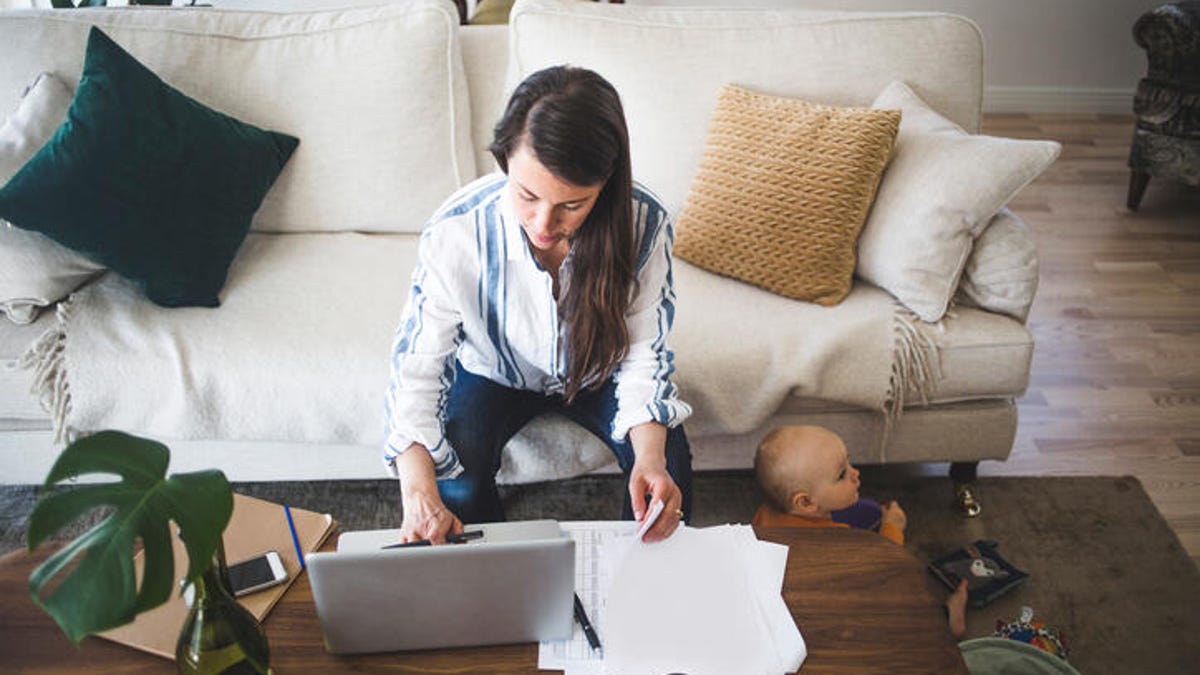You're not just lazy: Why it's hard to be productive right now
Mental health issues are on the rise, which can affect how motivated you feel at work and in your personal life.

If you're struggling to stay productive while you work from home, you're not alone.
Working from home comes with its own set of challenges -- barking dogs, kids running around and the ever-present lack of separation from work and home life. If working from home wasn't enough to take you off of your A game at work, a worldwide crisis can surely do it. And if your productivity is taking a hit due to mental health struggles like anxiety or depression, you're not alone -- one third of all Americans are coping with depression or anxiety symptoms in the wake of COVID-19.
If you're feeling less productive these days and wondering how to deal and what can help, keep reading below for insights from a licensed mental health therapist.
Why you feel less productive
Mental health plays a huge role in how well you feel on a day-to-day basis, and that includes how you feel at work. Even mild anxiety or depression can affect your productivity, according to Ashley McGirt, a licensed mental health therapist.
"Several studies have shown the connection between low work productivity and even mild forms of depression," McGirt says. "A normal brain thinks about 70,000 thoughts a day; an anxious brain processes two to three times that amount of thoughts and can lean to low productivity from spending time perseverating on numerous thoughts.
"The current state of the world has caused immense grief, depression and anxiety. Many people's normal coping forms have been closed, such as going to the gym, movies or [going] out with friends. As we have had to adapt to a new normal many of us have had to find new coping skills," McGirt says.
And if rising stress levels paired with less ways to deal isn't enough -- the current crisis has also brought huge issues and tensions to the surface -- like problems in the health care system, racial tensions and systemic inequalities.
"COVID-19 has exposed things that have already been around, from health care disparities to racial tensions, which has caused heightened stress. All of this takes a huge toll on one's overall mental health and well being," McGirt says.
On top of all of these problems, many people are isolated and away from friends and family. Even if you are near loved ones, your social life definitely looks different these days with more people staying home or limiting contact with others, which can take a toll over time.
One way to cope with low productivity is by giving yourself a break. It's not realistic to be productive all the time, especially in a pandemic.
Ways to cope with lower productivity
First of all, it's unrealistic to expect that in a time of unprecedented stress and uncertainty that you will be able to keep up with 100% of the workload or level of productivity you once sustained prepandemic. With that said, here are some things you can try to cope with the problem since oftentimes, not getting things done can create even more stress and overwhelm.
Give yourself permission to slow down and do less
"It is extremely important to give yourself grace during this time," McGirt says. "If all you do is get out of bed and brush your teeth consider it OK. We put too much pressure on ourselves to be productive and constantly working. It is important to slow down and rest and reflect. While we are dealing with many unknowns during this unprecedented time it is important not to add the stress of productivity to your plate."
Reduce your mental load
"Take one thing at a time and work to reduce your mental load," McGirt says. "If you find that daily household tasks are not getting done, find ways to eliminate some of them. From investing in paper plates to avoid washing the dishes and finding other ways to take some of your day-to-day tasks off your list."
Make joy and self-care a priority
"It sounds selfish on the outside but it is self preservation," McGirt says. "The first rule on the plane is to put on your oxygen mask in the event of an emergency prior to helping others. We are in a global emergency so it's important to find ways to put your mask on first, in more ways than one."

